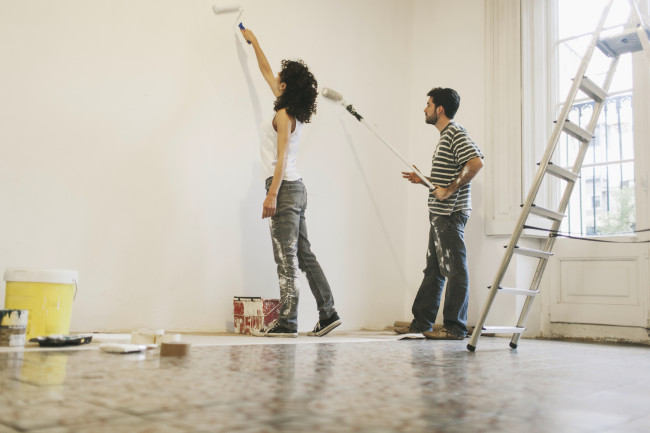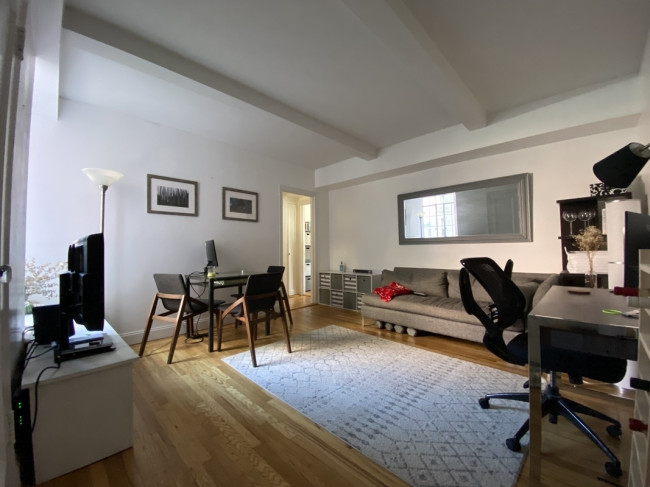I want to fix up my NYC rental apartment. What kinds of upgrades can I do?

Generally, cosmetic improvements like painting, changing light fixtures, and hanging pictures are allowed, but you will need to return the apartment to its original condition when you leave.
Since we are going to be stuck in our NYC apartment more than usual this winter because of the pandemic, my roommate and I want to spruce up our place. Is there a good rule of thumb for the kinds of upgrades we can do? Can we put up wallpaper, or would that put us at risk of losing our security deposit?
You are entitled to make limited, minor changes to your New York City rental apartment, but anything beyond that requires your landlord's permission, our experts say.
"Many leases prohibit tenants from making any changes such as installing wallpaper or finishing floors," says Jeffrey Reich, a partner in the law firm of Schwartz Sladkus Reich Greenberg Atlas. "A violation of these terms of the lease could not only result in a loss of a security deposit, it could also lead to a termination of the lease."
Generally, rental leases do permit superficial upgrades like painting, changing light fixtures, hanging pictures, putting up shelves, and installing curtain rods, but when you move out, you'll be expected to return the apartment to its original condition when you moved in. This could mean spackling over holes and repainting walls.
"Review your lease carefully and in most all cases, wallpaper must be removed prior to vacating the apartment. Any structural changes requires permission for the landlord," says Dennis R. Hughes, a broker with Corcoran.
Wallpaper can be tricky to remove, though, so by putting it up, you risk taking on the expense of hiring someone to remove it when you move out. And your best bet is to check with your landlord before you install it in the first place.
"It's always safer to ask, and it has to be in writing if the landlord consents," says Sam Himmelstein, a lawyer who represents residential and commercial tenants and tenant associations (and FYI, a Brick sponsor). "And if the landlord consents to one type of upgrade, it doesn't mean they've consented to you making others."
There are some exceptions: You can make larger changes—like installing new kitchen cabinets—if the ones you have are in truly terrible condition, and if you've asked the landlord to make repairs, and they've ignored you or refused to do so.
"Under those circumstances, if the tenant goes ahead and replaces them, it's probably okay," Himmelstein says.
There are upgrades that are never acceptable to make, however: Plumbing and electrical work require permits from the city because of the risk involved, and should only be undertaken by licensed professionals (and of course, with the landlord's knowledge).
If you are dealing with a landlord who refuses to make necessary repairs, your best bet is to file a complaint with 311 or to consider starting an HP proceeding in housing court.
Trouble at home? Get your NYC apartment-dweller questions answered by an expert. Send your questions to experts@brickunderground.com.
For more Ask an Expert questions and answers, click here.
You Might Also Like






























